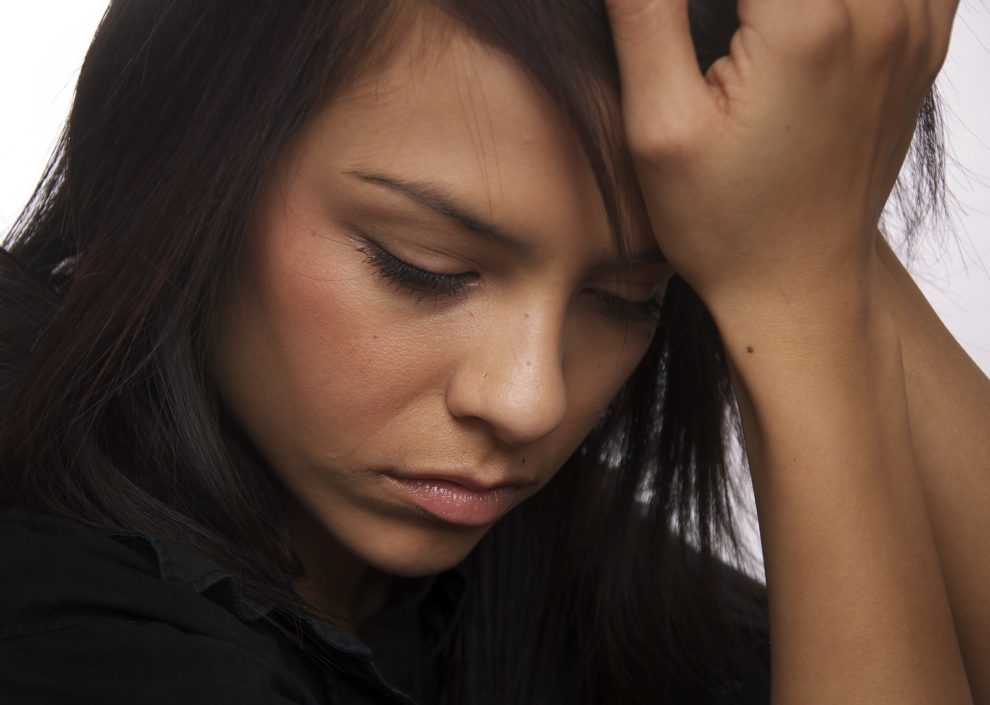We have all known kids in school who avoid social interaction, do not mix with the crowd and are often seen by themselves. We label them, “misfits,” or “loners.” Most of those kids do suffer from some level of social anxiety. However, when a child or adolescent has a consistent and persistent fear of being humiliated, ridiculed or embarrassed in social settings they may be suffering from a true psychiatric disorder called, Social Anxiety.
As with most anxiety disorders, the most common symptom is excessive worrying about, and avoidance of, social situations. We all occasionally have trepidation about social interactions, but these kids are quite literally terrified of embarrassing themselves in front of their peers. It is this overwhelming and debilitating fear that best characterizes this disorder.
Social anxiety is a very common anxiety disorder and affects about 10% of all children. Though rooted in biology and genetics, it is much more common among children with overprotective, anxious and controlling parents, and in children who are frequent targets of bullying by their peers.
The consequences of social anxiety are serious. The disorder seriously affects a child’s ability to develop heathy social skills and supportive friendships. Thus, social isolation is commonplace and may develop into other anxiety or depressive disorders as they age. This can be compounded by the already daunting challenges of adolescents and puberty.
Children and adolescents who suffer from social anxiety can often be identified through simple observation. They have few friends, avoid eye contact, and rarely if ever participate in conversations. They are emotionally guarded and interact little. Some suffer from performance fear such as public speaking. Some so severely, that they may refuse to attend school.
Those that do regularly attend school often have lower grades due to lack of classroom participation as well as high incidences of school absences due to avoidance behaviors. In guarding against their fear of being judged, they have very limited participation in school, rarely anticipate in athletic activities, or other social events. They are the ultra-loners who go to great length to separate themselves from the crowd.
What Does Social Anxiety Look Like?
A child will rarely report their fear of social interactions and situations. Instead, school nurses, parents and general practitioners will often see these cases when they present other vague physical or neurological concerns such as: headaches, blurred vision, dizziness and nausea in an attempt to excuse themselves for social interactions, school, etc. This is why primary care physicians and school nurses are often to the first to suspect a Social Anxiety diagnosis, especially when repeat visits with no trace of illness become persistent.
These children may also manifest behavioral and cognitive symptoms when exposed to social situations. They often have trouble thinking, concentrating, become overwhelmed and negative in their problem-solving approaches.
Above all, avoidance is the behavioral hallmark of social anxiety disorders. These children will frequently they find excuses to not attend social situations, refuse to attend school, don’t go to parties and never socialize in groups. Now that does not mean that your introverted child has this disorder. However, if they NEVER socialize and go to great lengths to avoid social interaction, then you might have a socially anxious child.
How Do I Get Help?
As always, the first step is a comprehensive evaluation by your Primary Care Physician, Pediatrician or a Mental Health Professional.
Once a Diagnosis has been established, a treatment plan can be developed. A combination of medication to relieve symptoms and psychotherapy to address behaviors, seems to be the most effective treatment.
Possible medications may include SSRI’s (Selective Serotonin Reuptake Inhibitors) Like Sertraline, Fluoxetine, Citalopram, Escitalopram, Paroxetine and others. Frequently non psychiatric medications like Propranolol (Beta Blocker) are prescribed.
Tranquilizers such as Benzodiazepines (Alprazolam, Diazepam, Lorazepam, Clonazepam and others) can be very effective in treating acute anxiety, but they should not be used long term in Social Anxiety Disorders. They can be use temporarily for short periods of time in severe cases to help functionality. Buspirone is also used in the treatment of generalized anxiety and may be effective in Social Anxiety Disorder. An Antihistaminic like Hydroxyzine and Diphenhydramine cans also be used as needed to treat the symptoms of anxiety.
Psychotherapy and Cognitive Behavioral Therapy (CBT) can be very effective in treating Social Anxiety Disorder alone or in conjunction with medications. For mild to moderate cases, it may be recommended to start with Cognitive Behavioral Therapy as the first line of treatment without the addition of medications. Exposure and Social Skill Training are forms of Cognitive Behavioral Therapy that facilitate recovery in conjunction with cognitive restructuring, a process of learning to identify and dispute irrational or maladaptive thoughts.
Consequences Of Untreated Social Anxiety Disorders?
Patients who suffer from Social Anxiety frequently develop a very low sense of self (low self-esteem), and therefore become socially isolated, lonely and frequently develop additional depressive disorders.
Social Anxiety may have a serious impact on personality development, with patient’s developing significant shyness and interpersonal avoidance.
Drugs and alcohol abuse are common consequences of Social Anxiety, since these may facilitate the reduction of anxiety and provide the anxious teen or child with a tool to temporarily reduce their anxiety and boost their self-confidence, to just collapse after their effect disappears. Alcohol and drugs are often a social catalyst that allows for isolated, group interaction that seems healthy, but is not.
Children with anxiety disorders are at a higher risk for suicidal behavior, especially if their anxiety is accompanied by depression.
Social Anxiety Disorder is treatable. If your child or teen is overly shy, socially isolated, avoidant, refuses to attend school and/or has long lasting medical complaints, get them to a licensed and experienced professional for a thorough evaluation and begin treatment as soon as possible.












